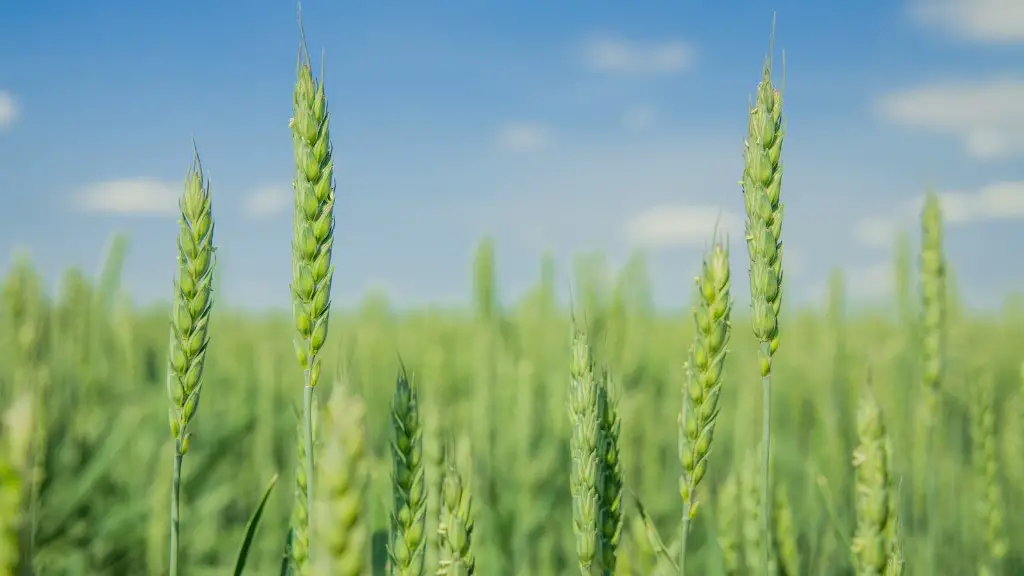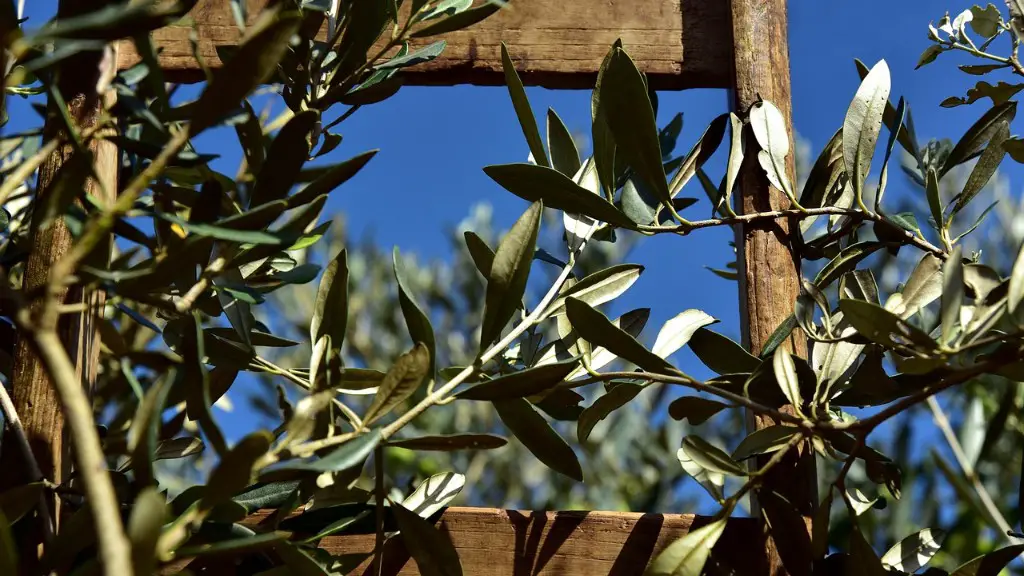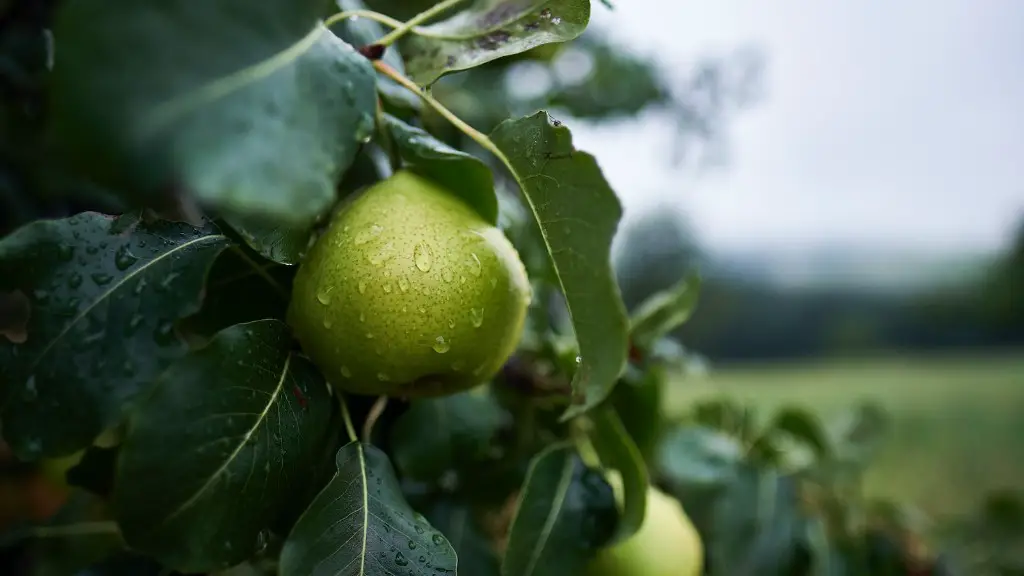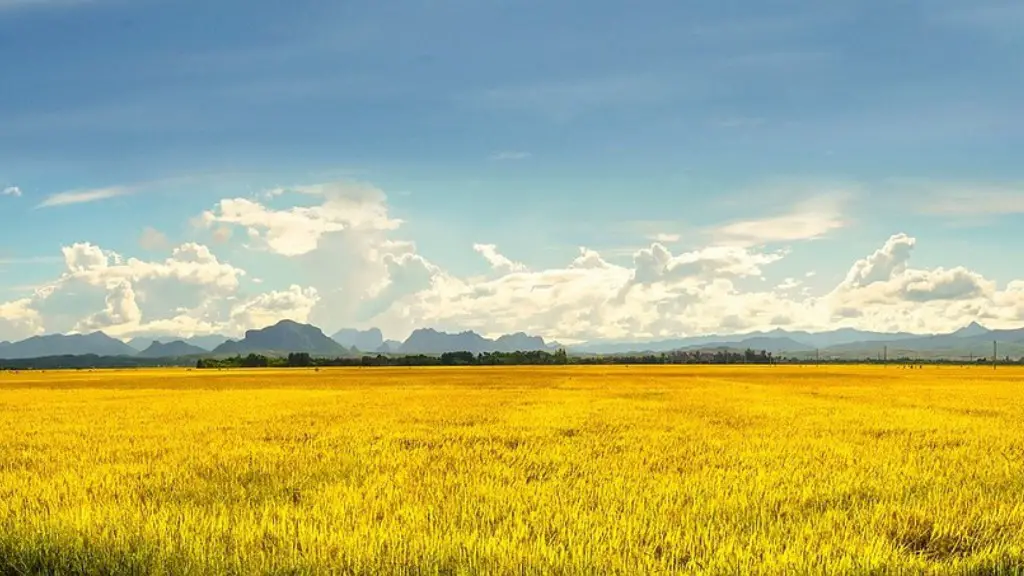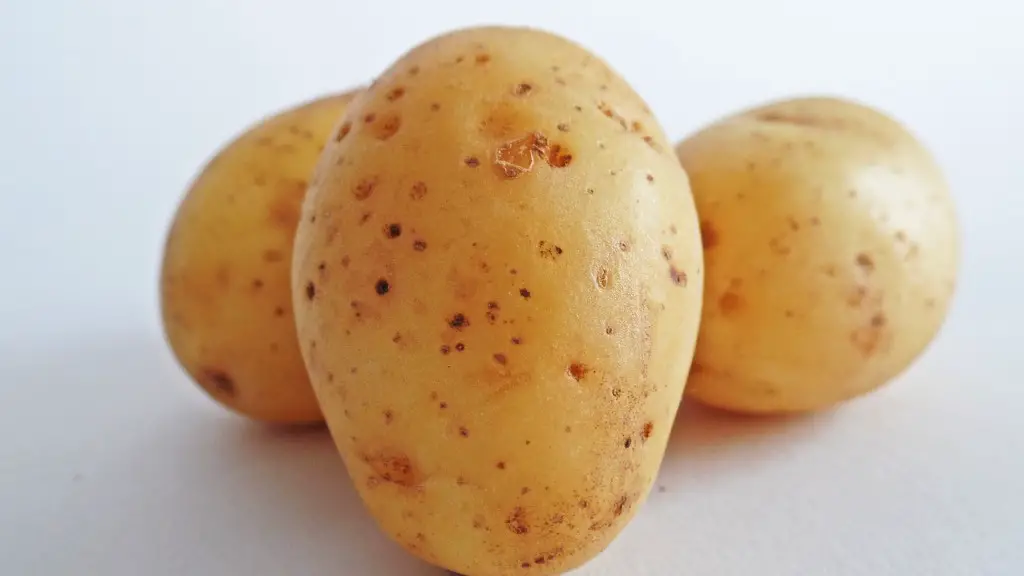Precision agriculture is a rapidly growing field that utilizes new technology to increase crop yields and decrease inputs costs. The goal of precision agriculture is to optimize production on a field-by-field basis through the use of GPS mapping, remote sensing, and yield monitors. This new approach to agriculture has the potential to increase profits for farmers while also reducing environmental impact.
Precision agriculture is a farming management strategy that uses information technology (IT) to gather data about the conditions of crops. This data is then used to make decisions about seed planting, crop maintenance, and harvest.
The goal of precision agriculture is to improve the efficiency of farming operations by reducing inputs (such as water, fertilizer, and pesticides) while maximizing outputs (such as yield and quality). In order to achieve this, farmers need to have a detailed understanding of their field conditions. This is where precision agriculture comes in, as it allows farmers to collect data about their fields in order to make informed decisions.
There are many benefits to precision agriculture, including improved yields, reduced inputs, and improved sustainability. Precision agriculture also has the potential to improve farmers’ quality of life by reducing the amount of time they spend working in the field.
What is a major focus of precision farming?
Precision agriculture is a relatively new field that is constantly evolving. It seeks to use new technologies to increase crop yields and profitability while lowering the levels of traditional inputs needed to grow crops (land, water, fertilizer, herbicides and insecticides). In other words, farmers utilizing precision agriculture are using less to grow more.
There are a number of different technologies that fall under the umbrella of precision agriculture, including GPS, GIS, remote sensing, yield mapping, and variable rate technology. Each of these technologies can be used to increase efficiency and profitability in different ways.
For example, GPS can be used for mapping and navigation, which can help farmers reduce fuel costs and inputs by ensuring they are only applied where needed. GIS can be used to create yield maps, which can help farmers identify areas of their field that are underperforming and make changes accordingly. Remote sensing can be used to monitor crop health, soil moisture levels, and other factors that can impact yield. And finally, variable rate technology can be used to apply inputs at different rates across a field, based on yield maps and other data.
Precision agriculture is still in its early stages, but it has the potential to revolutionize the way farmers grow crops. With the right technologies in
Precision farming is a type of agriculture where farmers use technology to increase yields and decrease costs. There are many benefits to precision farming, including reduced costs, increased profitability, enhanced sustainability, better harvestability, increased land values, higher resolutions understanding of your farm, and better in season yield understanding. By using precision farming techniques, farmers can increase their yields while using fewer resources, making their operations more sustainable and profitable.
Why you will go for precision farming in place of other farming systems
Precision farming is an agricultural production system that uses highly controlled, accurate, and optimized methods to manage production. This system facilitates more efficient resource utilization, better yield, and reduced environmental impact, all at the same time.
Precision irrigation is a type of irrigation that enables farmers to increase profitability by achieving higher yields per hectare, and better-quality crops, while using less water, fertilizer, and energy. When using precision irrigation, farmers enjoy greater predictability, and stability in an uncertain climate.
What are the three major impacts of precision farming?
Precision agriculture is a farming management strategy that uses technology to improve efficiency and productivity. It can be used to reduce input costs and improve environmental sustainability.
Precision agriculture is an approach to farming that uses technology to improve the efficiency of agricultural production. The technology can be used to improve the accuracy of crop and field measurements, to more effectively utilize tillage equipment, and to make better farm management decisions. The approach has the potential to improve the efficiency of agricultural production and to reduce the environmental impact of farming.
Why should we adopt precision farming?
Precision farming is a farming management concept based on observing, measuring and responding to intra-field variability in crops. The goal of precision farming is to optimize returns on inputs by precisely delivering crop production inputs according to the variation present in field conditions, while reducing inputs where they are not needed.
The main advantages of precision farming are:
1. Soil degradation is prevented: By better managing inputs and applying them only where needed, soil degradation is prevented. This leads to more sustainable farming practices and healthier soil.
2. Chemical application in crop production is reduced: By managing inputs more precisely, the need for chemicals is reduced. This is not only better for the environment but also results in crops that are healthier and of higher quality.
3. Water resources are used efficiently: One of the main goals of precision farming is to reduce wastage of inputs such as water. This is achieved by targeted irrigation that only waters the areas that need it, leading to savings in water usage.
4. Modern farm practices are disseminated: By adopting precision farming practices, farmers can improve the quality, quantity and cost-efficiency of their production. This in turn leads to higher incomes and a better standard of living for rural communities.
Precision agriculture and mosaic farming are two farming techniques that have gained popularity in recent years due to their potential to increase production efficiency while reducing on-site degradation of soil resources and off-site environmental problems.
Precision agriculture is a farming technique that uses information and technology to manager crops on a small, precise scale. This technique allows farmers to target specific areas of their field that need attention, and to optimize inputs based on real-time data. As a result, precision agriculture can help farmers reduce input costs, while also improving crop yield and quality.
Mosaic farming is another innovation that capitalizes on spatial variability. This technique involves growing a mix of crops in the same field, which can help to improve soil health and reduce the spread of pests and diseases. Additionally, mosaic farming can also help to improve water and nutrient uptake by plants, leading to increased production efficiency.
What are the advantages of precision farming answer
The goal of precision farming is to improve agricultural yield and reduce potential environmental risks. Benefits of precision farming include the ability to monitor the soil and plant physicochemical parameters. Sensors can be used to measure electrical conductivity, nitrates, temperature, evapotranspiration, radiation, leaf and soil moisture, etc. By monitoring these parameters, farmers can make adjustments to their farming practices to improve yield and reduce environmental risks.
Precision farming is a type of agriculture where farmers use modern technology to increase productivity and decrease chemical use. This technology includes GPS systems, sensors, and drones. These systems help farmers to know exactly how much water, fertilizer, and pesticides to use on their crops. This type of farming also helps farmers to reduce soil degradation, and to efficiently use water resources.
Is precision agriculture worth it?
Precision farming is a type of agriculture where farmers use technology to increase yields and decrease costs. This can be done through a variety of means such as GPS, sensors, and drones. By using precision farming tools and technologies, farmers can develop more effective plans that reduce the potential for environmental degradation and lower costs.
Precision agriculture or smart farming is an innovative way of using technology to improve yields and decrease inputs. By using GPS, sensors, and other forms of technology, farmers can more accurately target the needs of their plants or animals. This results in less wasted resources, and ultimately, a more sustainable and profitable operation.
Which is the most important technique in precision farming
VRT is a type of technology that is used in order to optimize the use of inputs in farming. This technology is used in order to apply different amounts of inputs depending on the need of the plants. VRT is mostly used for applying seed, fertilizer, and water.
If you’re looking to improve plant growth, installing an irrigation system is a great option. By watering plants with smaller amounts of water over a longer period, you can stimulate growth and encourage a healthy, green appearance.
Why are modern methods of irrigation better?
Drip irrigation is an irrigation method where water is slowly delivered to the roots of plants, either on the surface of the soil or directly to the root zone, through a network of valves, pipes, emitters, and drippers. It is an efficient way to water plants because it minimizes water wastage and can be tailored to the specific watering needs of the plants. Drip irrigation can be used in a variety of agricultural settings, from small gardens to large farms.
Precision agriculture has the potential to revolutionize the way we farm. By using technology to precisely target resources, we can greatly improve efficiency and yields.
At a recent conference, one farmer shared his vision for Scale-Independent Precision Agriculture (SIPA). He discussed how the 5Rs of precision farming—right time, right place, right amount, and right manner—contribute to successful implementation of this technique.
With SIPA, we can farm more effectively and sustainably. This is an exciting development that holds great promise for the future of agriculture.
Final Words
Precision agriculture is a farming management concept based on observing, measuring and responding to variability in crops. It is a way of practicing agriculture that makes use of precision technology to enhance management of field operations. The goal of precision agriculture is to ensure that farmers use the right amount of inputs (such as water, fertilizer and pesticides) at the right time and in the right place. This can help farmers to improve yield, decrease costs and decrease negative environmental impacts.
Precision agriculture has many benefits that make it a valuable tool for farmers. It can help farmers save money on inputs, increase yields, and improve the quality of their crops. Additionally, precision agriculture can help farmers reduce their impact on the environment.
